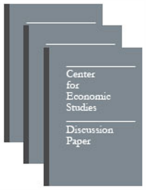Work Organization and Cumulative Advantage
Work Organization and Cumulative Advantage
Abstract
Over decades of wage stagnation, researchers have argued that reorganizing work can boost pay for disadvantaged workers. But upgrading jobs could inadvertently shift hiring away from those workers, exacerbating their disadvantage. We theorize how work organization affects cumulative advantage in the labor market, or the extent to which high-paying positions are increasingly allocated to already-advantaged workers. Specifically, raising technical skill demands exacerbates cumulative advantage by shifting hiring towards higher-skilled applicants. In contrast, when employers increase autonomy or skills learned on-the-job, they raise wages to buy worker consent or commitment, rather than pre-existing skill. To test this idea, we match administrative earnings to task descriptions from job posts. We compare earnings for workers hired into the same occupation and firm, but under different task allocations. When employers raise complexity and autonomy, new hires’ starting earnings increase and grow faster. However, while the earnings boost from complex, technical tasks shifts employment toward workers with higher prior earnings, worker selection changes less for tasks learned on-the-job and very little for high autonomy tasks. These results demonstrate how reorganizing work can interrupt cumulative advantage.
Others in Series
Working Paper
Working Paper
Working Paper




